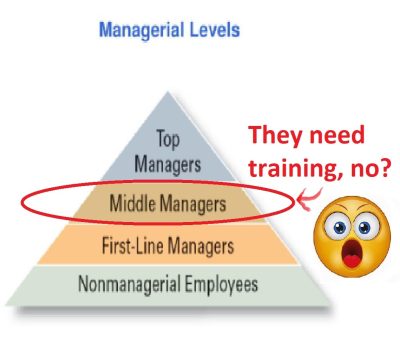
With a bunch of subjects (including human being, item or matter) that we came across or encountered in our everyday life, we need to process the information that we have at that point of occurrence (with the lessons learnt from the past experiences we had) when making the best possible decision among all the options we could foresee, in our mind.
Information is vital for decision making.
But, how could we tell if the information shared and given to us hold a high level of truth? Did we get the honest information from others? Well, it is hard to determine that since we do not have a ‘read-other’s-mind’ ability built in our human body. If honest information was shared with us, we could definitely be able to reduce a lot of unnecessary risks; and select an option that could lead to a better outcome.
What are the things that you wish you have the honest information before hand? I have a few in mind, for work-related segment.
1) Job Hiring Post / Ads
For a job hiring posting for Accountant, it requested the candidate to perform a job scope that is beyond an Accountant usually does, but more of a Finance Manager. And this person will only be paid at an Accountant’s salary.
For a job post for Finance Manager, the company dares to ask the candidate to perform job scopes that are supposed to be carried out by a Chief Financial Officer (CFO)! Just look at those long list of job scopes they put in their advertisement. With such heavy job responsibilities, he or she would only be paid at a Finance Manager’s salary range.
One has to cover for business growth direction – isn’t this a CEO’s job?
One has to cover for market trend – isn’t this the Marketing team’s role?
One has to cover for Administrative job (such as meeting arrangement, team event and so on) and Human Resource’s tasks (such as employees’ salary, allowance and time card. – isn’t this a Human Resource Personnel’s job scope?

Why the hxck having all those jobs loaded onto the Finance Manager’s shoulder? On top of that, company only pays the candidate only at one person’s salary even though he or she has to cover for all those cross-departments’ jobs. Does the company intend to hire a human or a robot with eight arms?
If the candidate really can do a good job covering all those cross-departments’ job scope, very well then. As a token of appreciation, he or she might be compensated for a bit more allowances from the company. But, what if the finance manager did a mistake while carrying out a CFO-level’s task? His or her manager might push the blames onto the finance manager; or worst case, sack the said finance manager with ‘lack of technical knowledge’ as the reason given by the company or executive (middle level of management team) to be precised. Is that fair treatment to the employee?
So, for the company that has posted such hiring post, was the company actually short of budget in hiring those missing positions to do the works for the company or the executive team of the company in fact lack of experience in designing a basic yet healthy organization chart that each company should be in?
2) Employment Contract / Agreement

Although it was called an ‘agreement’ but when comes to an Employment agreement (or contract), the wordings and clauses prepared by the Human Resources Department or the company for new hirer, might often times lean towards or be more for the benefits of the company, rather than fair treatment to the employee.
Most of the Employment Contracts, in Asia, has ‘at the discretion of Management’ stated here and there. What have been agreed upon during acceptance of the said employment contract might be removed or amended any time, at management’s will or decision. Employee has no say at all; for instance, monthly allowances, annual leaves entitlements and yearly increment. The critical clause that would impact the employee the most would be the non-contractual performance bonuses in an employment contract. At any point of time when management decision was made, it could lead to not even a single cent being given to the employee as performance bonus, irrespective of how much efforts and works he or she has rendered to the company throughout the year.
Employees would be brushed off by the common excuse often conveyed by their managers – that ‘company didn’t make much profit’ therefore no performance bonus for that financial year. But, never once had employee being disclosed by the executive team on how much profit would deem as ‘much profit’. Was it only this local company do not entitle for performance bonus or the whole group of companies bear the same outcome? Neither could the employee be shared more information about that, nor verified such financial results elsewhere.
Bias treatments or so-called double-standards in distributing and honouring employees’ benefits still happens, till this day.
3) Core Values
The commonly seen Core Values that company would have on their Vision board and/or website, include but not limited to the following:
– Respect
– Teamwork
– Openness/Honest
– Trust
– Equality
Once these core values were determined and set in stone by the company, how often would it be re-emphasised and reminded to be demonstrated by each level of managers (from lower/junior level of management, middle level of management, to the top/senior level of management) towards their team or non-managerial employees? Core value definitely wasn’t just for poster printing sake, right? Those were the core values that the founder or committee members of the company has chosen to have. And, each and every one of company’s employees is expected to practise and demonstrate those core values at their daily work.
When I attended the external training courses, I had the chance to meet with managerial-post attendees from various companies, from different sectors. I took the opportunity to ask those attendees from the Human Resource department and even to the trainer him/herself – Does the middle level of management team or senior management team member ever attend training courses on team management and soft-skill trainings, for instance, How to better manage a team, Emotional intelligence (EQ) at work, or any other teamwork-related trainings? They replied me with a rather uniformed answer – No. Very unlikely.

Might it be that majority of the professionals that already reached and held high position at work carry with them the ‘I’m already having my cup-full’, ‘I don’t need any more trainings’, ‘I am always right and people should listen to me instead’ mentality? Does the egoistic in them somehow prohibit them to learn and understand the welfare of non-managerial employees?
If executive team ignores the basic values such as respect, equality and unable to handle honest feedback, how or what to expect from them to lead the team onto the right ‘core values’ track? If managers are not ready to receive, handle and process honest feedback given by their team member, then the said employee who had taken the courage to share their honest feedback or views with their manager, would literally, carry a high risk in their action as their manager might hold grudge against the employee instead and get rid of them (by sacking them) right away for not obeying or aligning with their manager’s will.
Are Core Values just another lip service to the employees?

Many people opt for self-reading rather than attending trainings. Well, no doubt, reading is a good habit, i.e. a good way to gain and broaden one’s knowledge, at all ages. Enjoy reading is one thing; able to pick up something good from a book or an article, think it through, reflect on oneself and then take action to put it into practice to become a better self is another thing though. Some people can memorize all the words in an article, from A to Z, without any mistake; but his or her behaviour and attitude neither reflect nor demonstrate any that they have read…
4) If They Dare To Be Honest, It’d Be Like This?
i) Job hiring post
– You would be paid as Finance Manager (for example) but you have to perform job scopes that of a CFO.
– You have to be able to be multi-tasking and cover for three persons (cross-departments)’ job scopes.
– You have to be on duty 24/7 even though it is public holiday in the country you live or your rest day but you are prohibited from contacting your manager(s) during Christmas holidays.
ii) Employment Contract
Short and brief (with only two liners).
You are offered as the post of Finance Manager; x-month of notice period is required upon resignation. This whole contract is at the discretion of management, therefore, no further clause is needed on employees’ benefits.
The End.
iii) Core Values
– Respect (depends on what post you hold, where you from and who you are…)
– Teamwork (people-pleasing skill is needed.)
– Openness/Honest (keep it to yourself. No one is listening.)
– Trust (you must trust your manager but not the other way round.)
– Equality (that’s a joke.)

